The slitting machine may encounter a variety of faults during use, which can be mainly attributed to the quality problems of the equipment itself and the improper operation of personnel. Here are some common slitter failures and how to fix them:
First, the cutter is faulty
1. Fault phenomenon: the cutter is not sharp, resulting in uneven cutting or continuous cutting.
• Solution: Check whether the cutting edge of the cutter is blunted, if so, replace the cutter with a new one in time.
2. Fault phenomenon: the cutter swings ineffectively, which affects the cutting effect.
• Solution: Repair the cutter swing mechanism to ensure that it can move flexibly. At the same time, check whether the cutter is offset from the preset position of the cutter shaft, whether the fixed cutter screw is loose, and adjust or tighten accordingly.
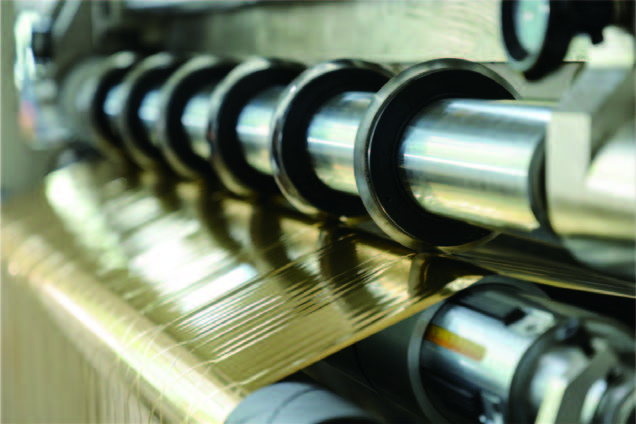
Second, the equipment cannot rotate normally
1. Fault phenomenon: the device cannot be started or does not rotate smoothly.
• Solution: When the equipment is overloaded and the inverter has an overcurrent alarm, turn off the total power supply of the electronic control system in time and restart the slitting machine. Check whether the gears of the gearbox are damaged, if there is damage, you need to turn off the main power supply first, and then turn the uncoiling head by hand to observe whether there is any jamming, and replace the damaged device in time.
3. Failure of the correction device
2. Fault phenomenon: the deviation correction device cannot work normally, resulting in the deviation of the material.
• Solution: Check whether the adjustment method and working status of the photoelectric eye are correct, and readjust it according to the requirements of the manual. If the color difference between the tracked line or edge and the surrounding material is not obvious, the color difference contrast should be increased so that the deviation correction device can accurately identify.
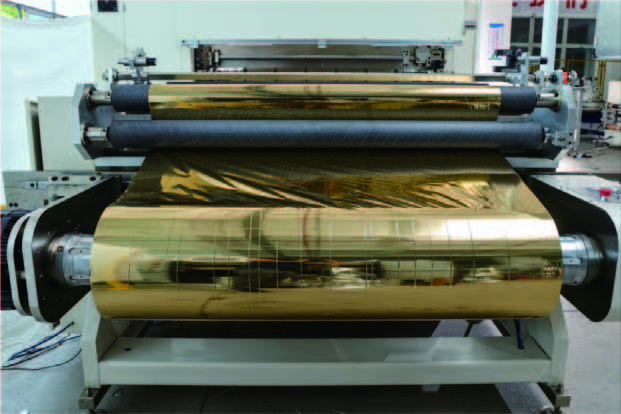
Fourth, the rewinding and unwinding failure
1. Fault phenomenon: insufficient winding tension, resulting in loose winding film.
• Solution: Adjust the voltage of the upper and lower tension control instrument of the magnetic particle clutch. If the winding tension is still not enough when the voltage is adjusted to a very high level, it may be that the output torque of the magnetic particle clutch is not enough, at this time, the magnetic particle clutch should be disassembled, and an appropriate amount of new magnetic powder should be added to it.
2. Fault phenomenon: the unwinding swing arm cannot lift the material normally.
• Solution: Check whether the air pressure system (such as air pump, control valve, etc.) is abnormal, and replace or repair it in time if it is damaged. If it is not due to air pressure, it may be that there is a problem with the swing arm bearing, and it is necessary to replace the new bearing or lubricate the original bearing.
Fifth, the cutting accuracy decreases
1. Fault phenomenon: the cutting accuracy is not as good as before, and there is a deviation.
• Solution: Check for worn or incorrect installation of the cutter, and replace or reinstall the cutter if there is a problem. Adjust the gap between the cutter and the upper cutting roller to the correct position.
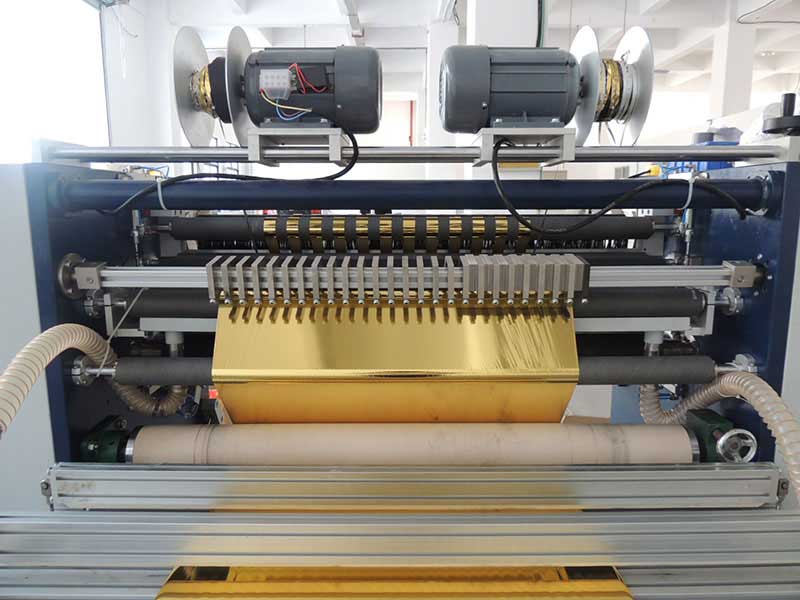
6. The equipment is noisy and vibrates significantly when it is running
1. Fault phenomenon: high noise and obvious vibration when the equipment is running.
• Solution: Check and tighten the screws and connectors of each part of the equipment to prevent loosening. Check the inside of the equipment for foreign objects or damaged parts, and clean or replace them in a timely manner.
7. The machine cannot be started or the electrical parts fail
1. Fault phenomenon: the machine cannot be started or the electrical parts fail.
• Solution: Check whether the electrical parts such as switches, fuses, power supplies, etc. are damaged or poorly contacted, and replace or repair them if so. Check whether the electrical control system is working normally, and if there is any abnormality, it will be debugged or repaired.
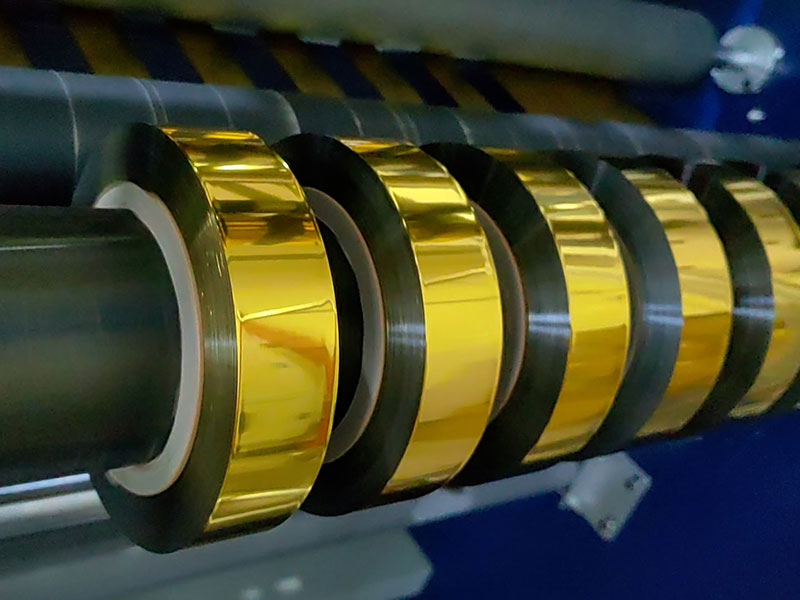
8. Uneven winding
• Fault phenomenon: uneven winding of the automatic slitting machine.
• Solution: Replace the paper core with the desired inner diameter. In addition, in the winding process, the winding pressure roller should be used to avoid the problem of uneven winding.
9. Inaccurate metering
1. Fault phenomenon: the meter is not accurate.
• Solution: The two wheels of the counting wheel can touch the feeding rubber roller at the same time, and mark on the counting wheel. If you count 5 turns manually, then count 1 meter, otherwise replace the counting wheel.
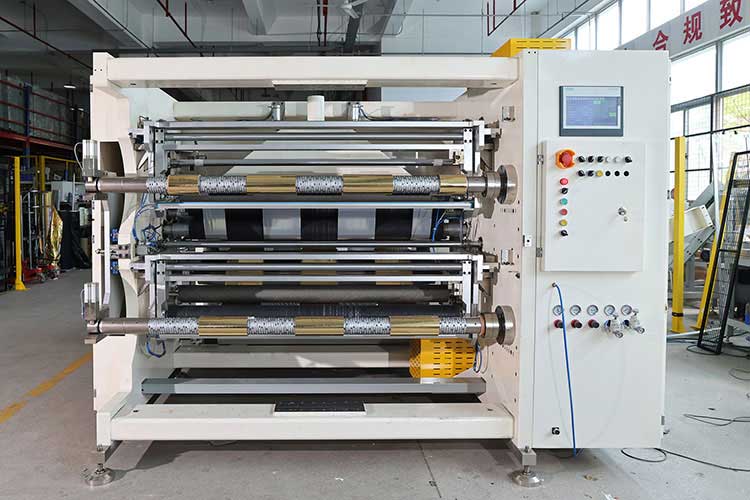
10. Semi-finished products
1. Fault phenomenon: the middle part of the semi-finished product is loose.
• Solution: Adjust the bow roller to make it support flat, or increase the tension of the unwinding shaft, and use the knife tube to compact the substrate.
2. Fault phenomenon: wrinkles appear when semi-finished products are wound.
• Solution: Increase the pressure of the tensioning cylinder appropriately.
In order to ensure the normal operation and prolong the service life of the equipment, it is recommended to carry out regular maintenance and upkeep work of the equipment. At the same time, operators should receive professional training and be familiar with the operating specifications and safety precautions of the equipment to reduce the occurrence of failures.





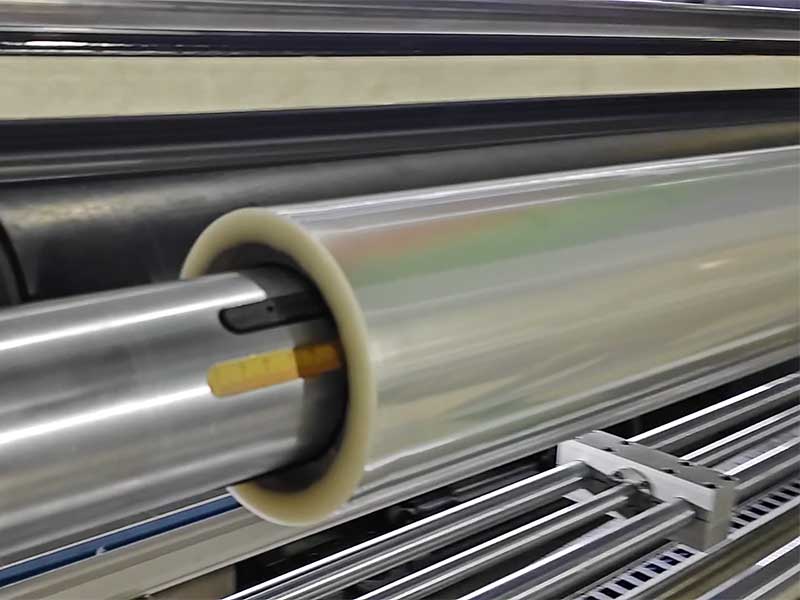
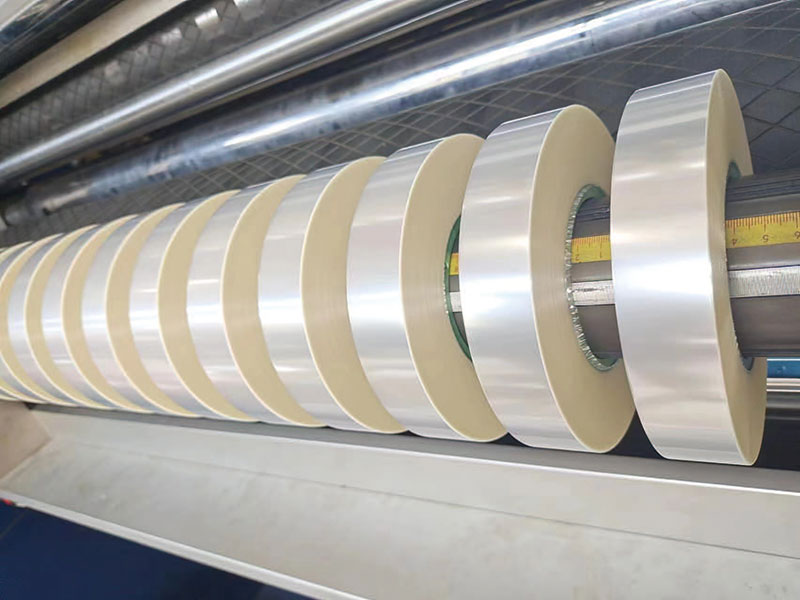
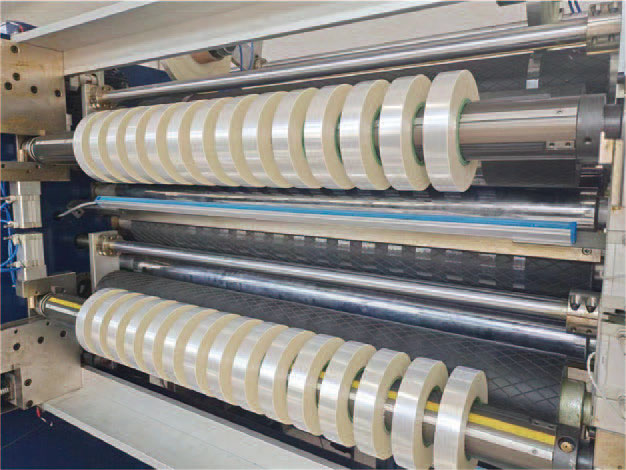
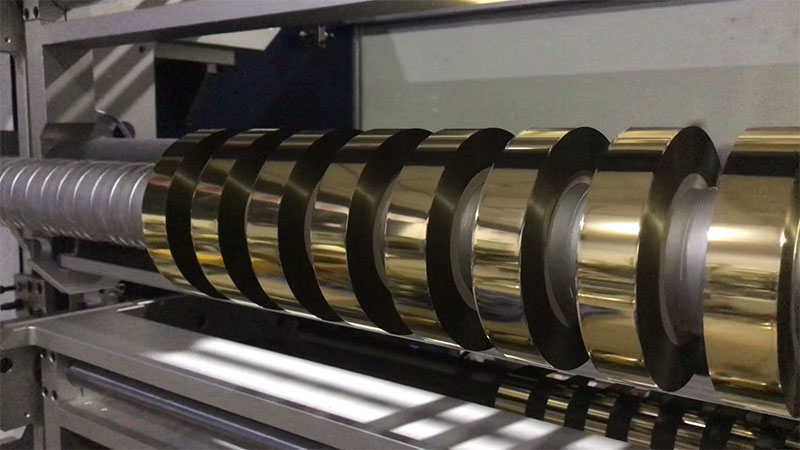
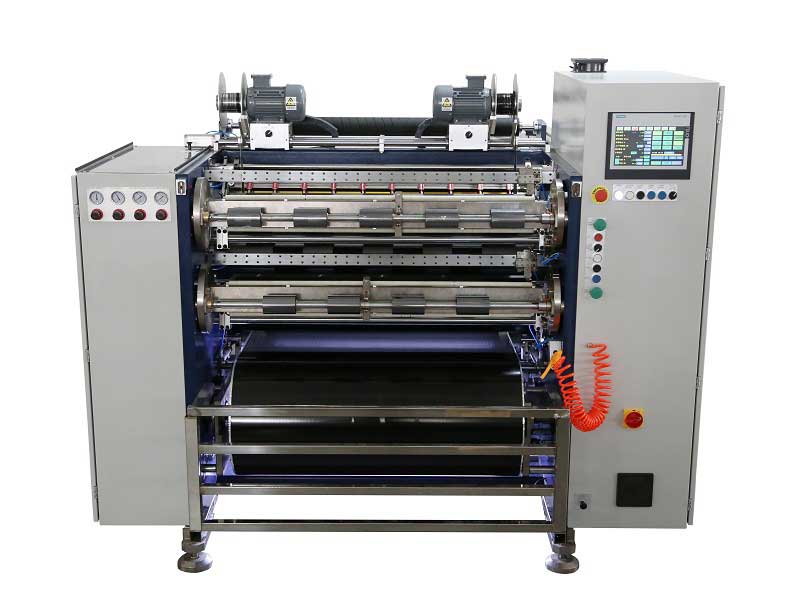 Automatic Thermal Transfer Ribbon Slitting Machine RSDS8 H PLUS
Automatic Thermal Transfer Ribbon Slitting Machine RSDS8 H PLUS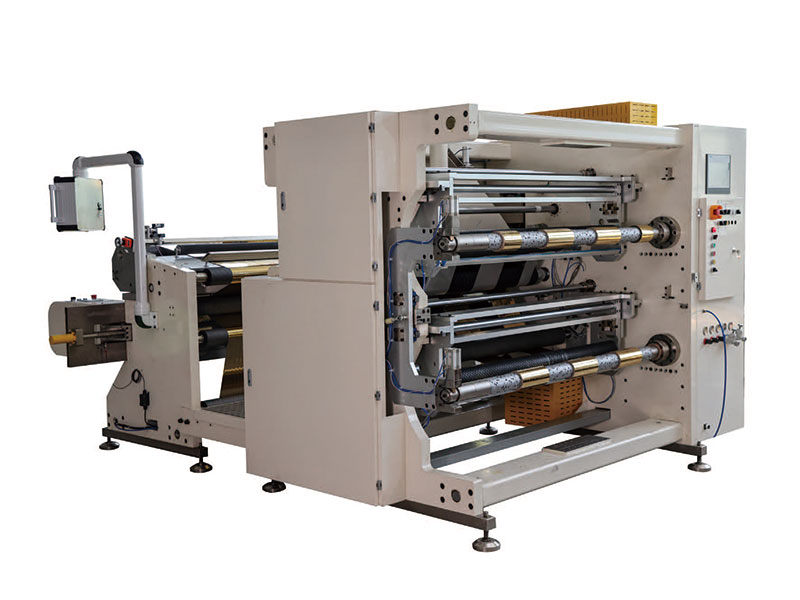 1400mm Hot Stamping Foil Slitting Machine
1400mm Hot Stamping Foil Slitting Machine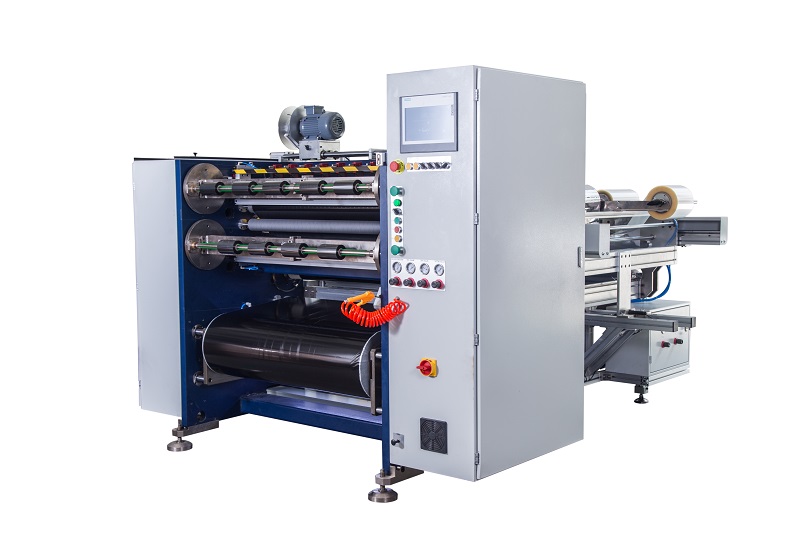 Semi Automatic Thermal Transfer Ribbon Slitting Machine RSDS5 PLUS
Semi Automatic Thermal Transfer Ribbon Slitting Machine RSDS5 PLUS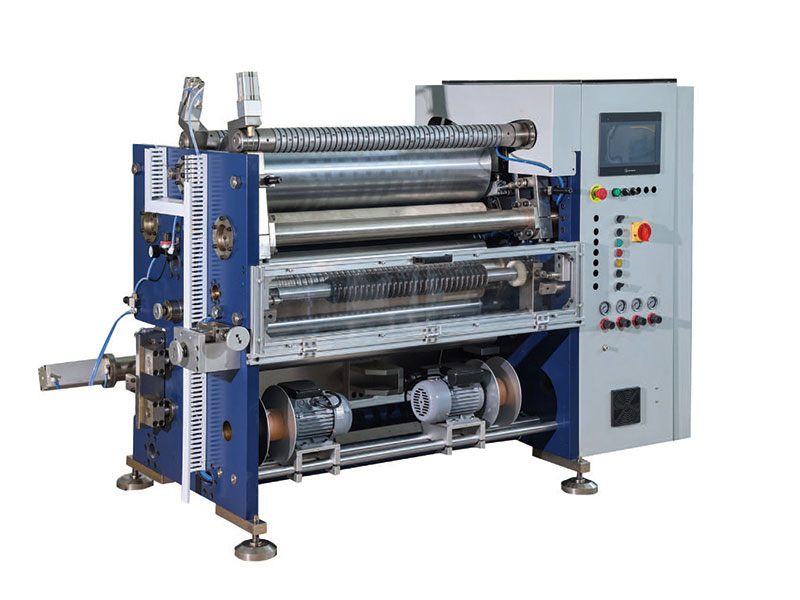 800mm Hot Stamping Foil Slitting Machine
800mm Hot Stamping Foil Slitting Machine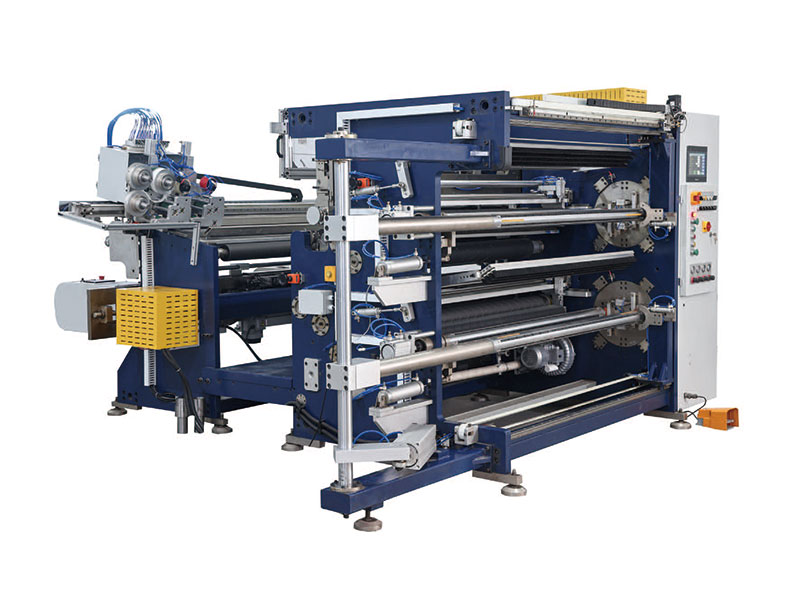 1350mm Hot Stamping Foil Slitting Machine
1350mm Hot Stamping Foil Slitting Machine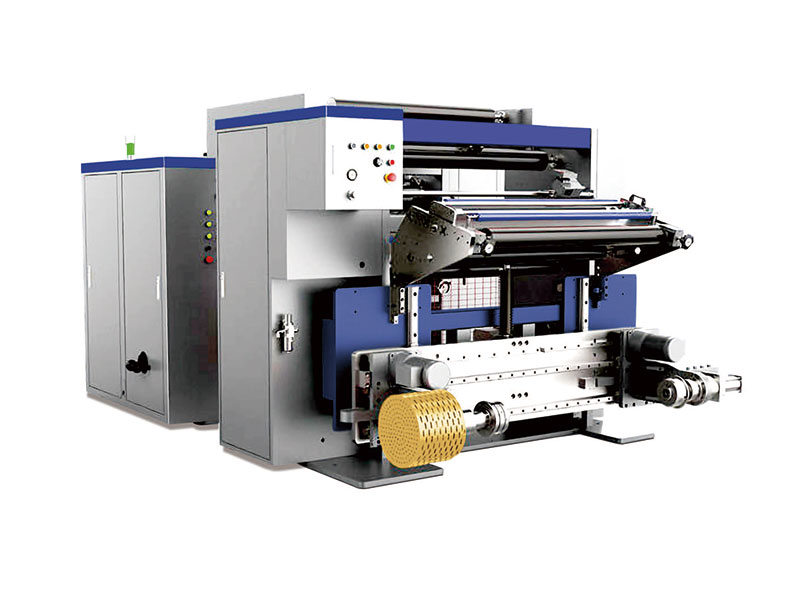 High Speed Slitting Machine
High Speed Slitting Machine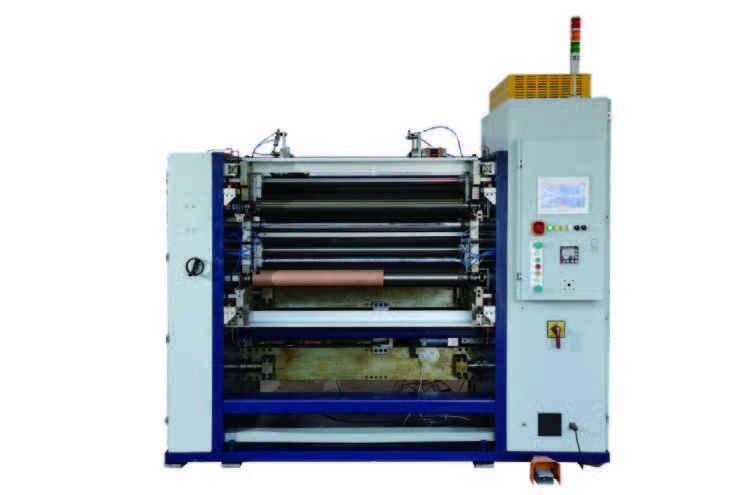 New Energy Ultra-thin Film Slitting Machine For Capacitive Film
New Energy Ultra-thin Film Slitting Machine For Capacitive Film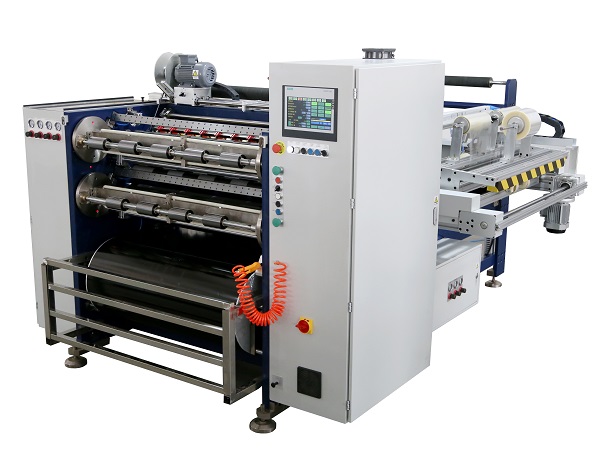 Automatic Thermal Transfer Ribbon Slitting Machine RSDS8 PLUS
Automatic Thermal Transfer Ribbon Slitting Machine RSDS8 PLUS

